Seeed Studio’s XIAO family of tiny MCU boards expands with the XIAO ESP32C3 board equipped with ESP32-C3 WiFi and Bluetooth LE (BLE) microcontroller, support for LiPo batteries, and following the same 21 x 17.5mm form factor.
If I’m counting right, this is the fifth member following the original XIAO based on Microchip SAMD21G18 Cortex-M0+ MCU, XIAO RP2040, and the nRF52840-based XIAO BLE and XIAO BLE Sense boards which I tested with Edge Impulse.
XIAO ESP32C3 specifications:
- Wireless MCU – Espressif Systems ESP32-C3 single-core RISC-V microcontroller @ 160 MHz with 400KB SRAM, 384KB ROM, 4MB flash Wi-Fi 4 & Bluetooth LE 5.0 connectivity
- Antenna – External u.FL antenna
- USB – USB Type-C port for power and programming
- Expansion I/Os
- 2x 7-pin headers with 1x UART, 1x I2C, 1x SPI, 11x GPIO (PWM), 4x ADC, I2S
- 3.3V I/O voltage (not 5V tolerant)
- Debugging – JTAG pads
- Misc – Reset button, Boot button, charging LED
- Power Supply
- 5V via USB Type-C port
- Support for LiPo batteries with battery charging chip, charging current: 50mA/100mA
- Power consumption @ 5 V
- 44 μA in deep sleep mode
- WiFi – 74.4 mA in active mode, 24.4mA in modem-sleep mode, 3.6mA in light sleep mode
- BLE – 26.8 mA in modem-sleep mode, 9.7 mA in light-sleep mode
- Dimensions – 21 x 17.5mm
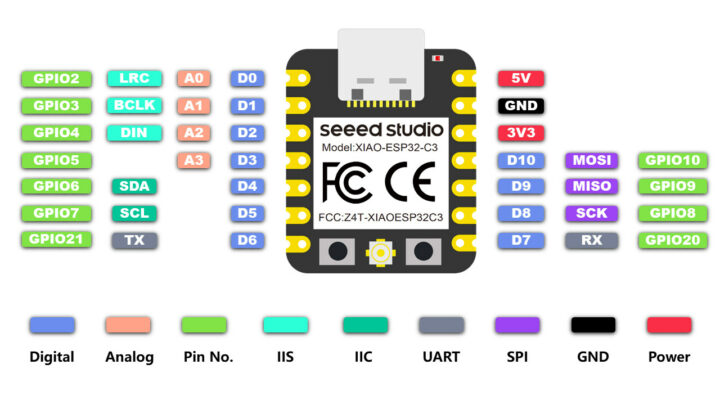
The XIAO-ESP32C3 can be programmed with the Arduino IDE with instructions in the Wiki. Note those are slighlty out of date at the time of writing, as the latest ESP32 Arduino 2.0.4 was released a few days ago with support for the board, so you don’t need to install “XIAO_ESP32C3” code manually anymore.
The good news is it is the first XIAO board with WiFi connectivity, it keeps the same form factor and by extension supports compatible expansion boards, plus adds I2S for audio, but it does lose some LED, a couple of ADC input pins, and consumes a lot more power than nRF52840 in deep sleep as one would expect. Fans MicroPython and CircuitPython programming will also be disappointed as it appears Seeed Studio only plans to officially support Arduino as shown in the comparison table below.
The board can be used in Internet of Things projects, wearable devices, health monitoring devices, as well as for Smart Agriculture and low-power networking. Seeed Studio sells the board for $4.99 plus shipping. It’s shown as being out of stock at the time of writing, but you can register to get notified of stock.
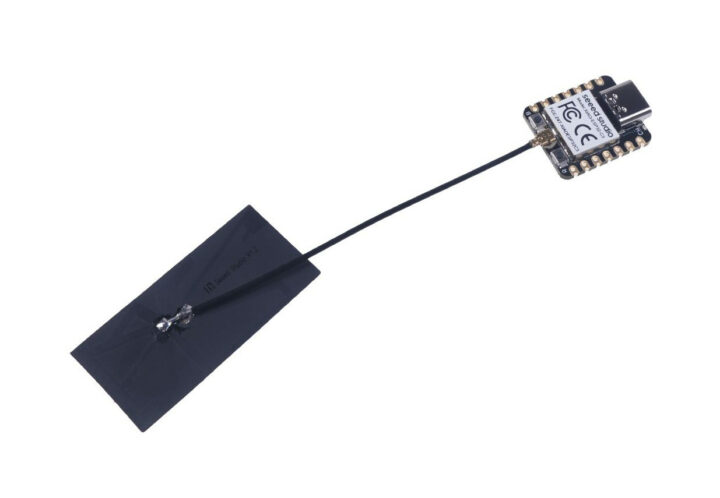

Jean-Luc started CNX Software in 2010 as a part-time endeavor, before quitting his job as a software engineering manager, and starting to write daily news, and reviews full time later in 2011.
Support CNX Software! Donate via cryptocurrencies, become a Patron on Patreon, or purchase goods on Amazon or Aliexpress


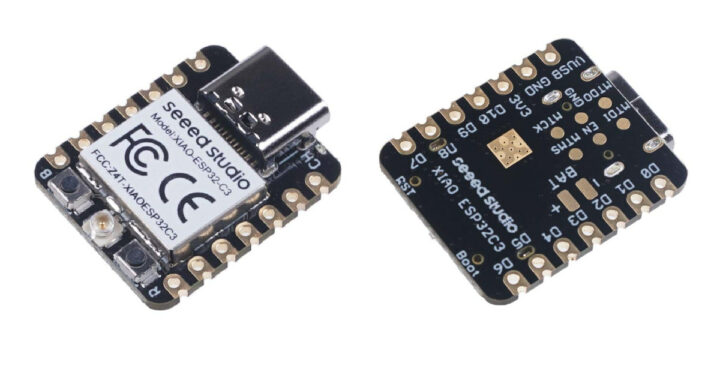
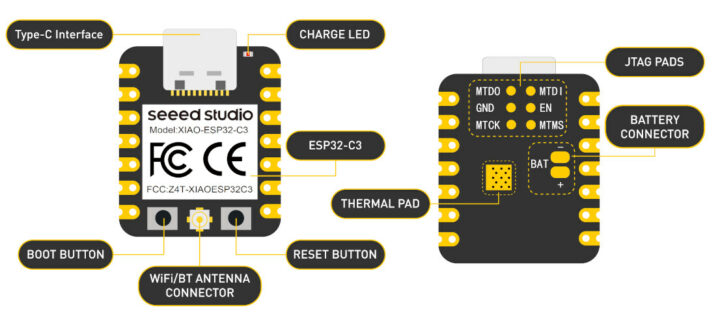
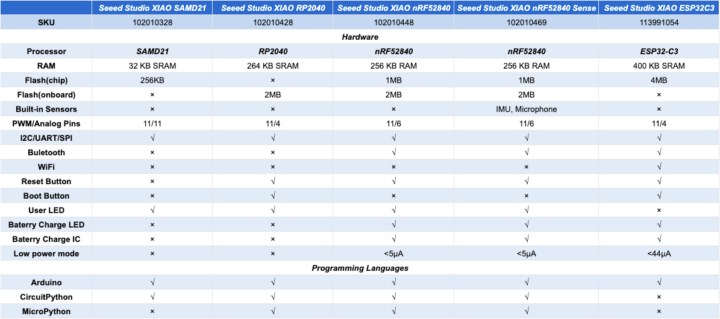



hi,
the table is not correct.
Micropython runs on a esp32-c3
How portable is esp32 code to the c3?
Quite portable if the project uses high level Arduino API or Esp-idf API. OTOH if the esp32 project uses CPU specific code (let’s say tensilica assembly and it needs to run on risc-v) then it gets more complicated.
Sure the core is logic that it differs, after all that’s one of the selling points. but peripherals are same then if i understood you correctly
If you use esp-idf you can just change target and rebuild